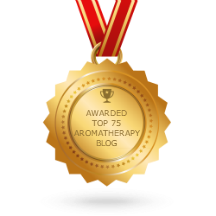We frequently are asked "Are your oils Organic?"
My standard answer is "The horticultural status of each oil is listed as part of its description. Many are organic, many are ethically wild-crafted, some are conventionally farmed."
But there is, in truth, much more involved than that.
Many of our oils are what can only be described as "organically grown, not certified." There are MANY small "artisan distillers" who sell all of their product, often prior to harvest, and have neither the financial means nor the free time to jump through all of the administrative hoops that are required to obtain any one of the multitude of organic certifications. Do they meet the criteria? I believe so.
An example: For several years we have offered a French Lavender Mailette. For three years we described it as "In Conversion"... ie, the producer was in the midst of the five year process of getting his fields certified. Today we can describe it as "Organic"... he received the certification.
We will soon be bringing in another French Lavender, grown, harvested and distilled by a personal friend. He is not about to jump through all the hoops required for certification in the EU.
His will be marked "organic, not certified" for lack of a better term.
We have one supplier who offers "certified non sprayed" citrus oils... and some "certified organic"... and another who has never used any pesticide sprays or synthetics... but refuses to even think about getting certified. I try to mark the oils whose certification I have copies of as "certified organic" or EcoCert, or whatever is appropriate.
There are parts of the world that produce oils free of pesticides, free of chemical fertilizers, free of all "non-traditional" or chemical additives. No GMO seeds, no modern chemistry at all. Some growers in these countries have had the resources to become certified. Others do not.
There are other factors involved, as well. One can have a certified organic, poorly distilled oil. The result, of course, is a certified organic mediocre product. I'd rather a perfectly distilled uncertified, or even conventionally farmed product.
Another factor. As stated above, I do have the organic certificates from many of our producers. Will I share them? Not any more. We used to; because some of our manufacturing clients require the certification. A few years ago a fairly well known "name" in our industry asked for a huge bulk quote. She agreed to our pricing, but requested the certificates in advance. I sent them all. The huge order never materialized. But she soon started offering the same list of oils on her website. She quite obviously used the certificates to find my suppliers, and placed her order directly. That was the year we stopped offering the certifications we have on file.
Our descriptions describe the status of the oil as we received it from the producer. Nature's Gift lacks the free time (or the interest!) to go through all of the red tape required to become an organically certified reseller. I have two friends (importers, much larger than we are) who have either completed the process or are in the middle of it. After hearing their adventures in the process, it is not something we plan to undertake.
Hope all of this makes some sense, and adds some clarity to what can be confusing terminology.
Friday, March 13, 2009
Subscribe to:
Post Comments (Atom)


2 comments:
Thank you Marge for being so clear - I get this asked frequently and from now on - I'm just referring questions to a higher power - YOU!
Thanks for that explanation. Sometimes the organic certification involves a lot of politics and a lot of money. I import four essential oils from my country Ecuador, they all come from artisans and small communities who could not afford to go through the hassle and the money to obtain that certification. I think the key is to know your suppliers and trust their integrity
Post a Comment